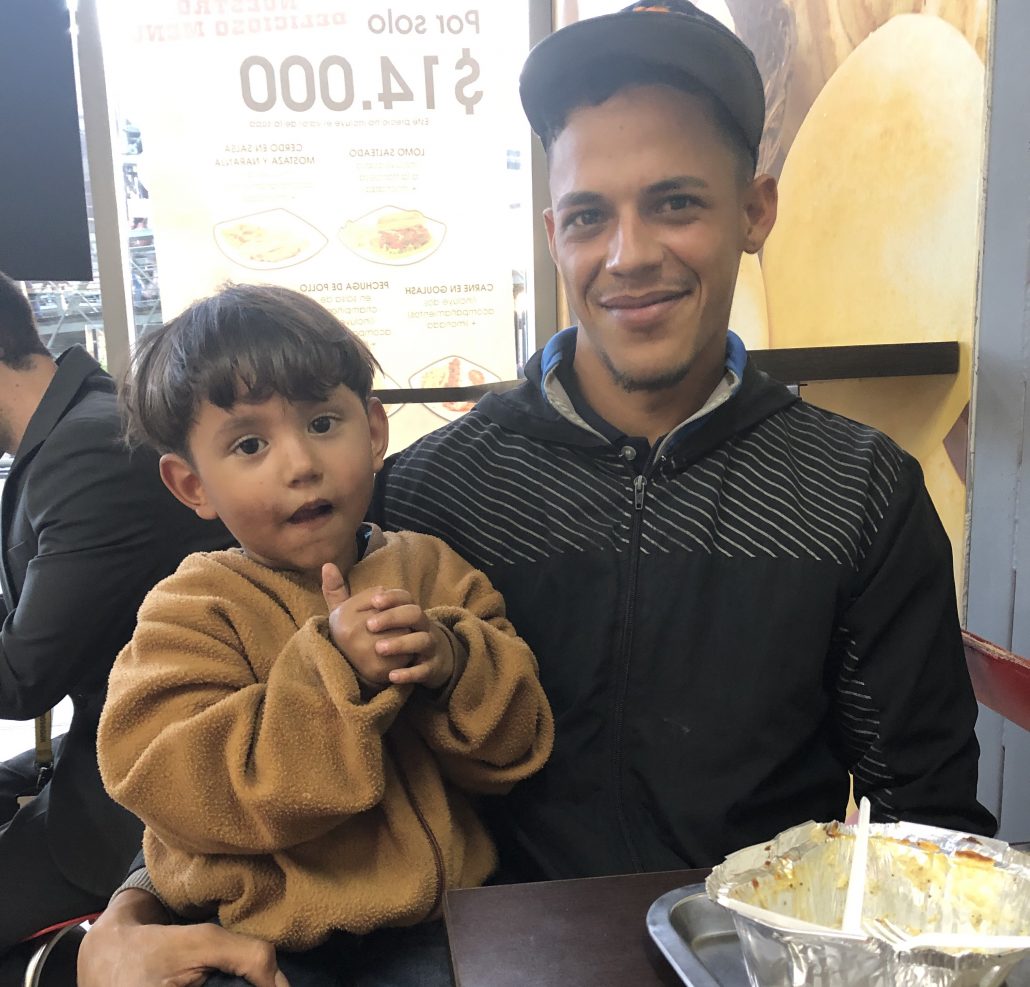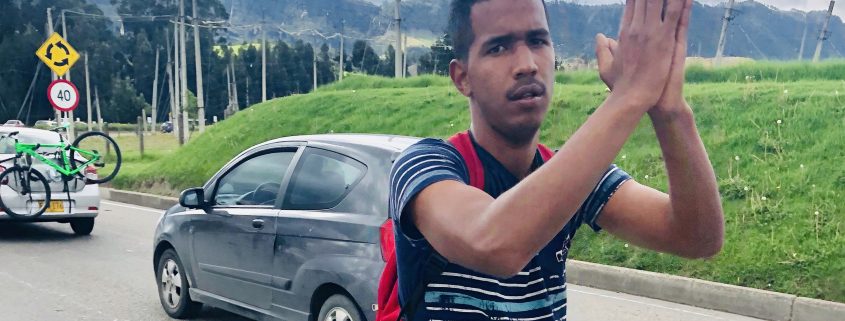An Upside Down Reality
These days in Bogotá, Colombia, one can find Venezuelans everywhere. Many are roaming the streets looking for work, others are asking for a coin to buy bread. It is heart-wrenching to see young kids in odd-sized clothing and dirty faces with either Mom or Dad looking sad and forelorn.
Colombia, with over 20 million more in population than Venezuela, has welcomed over 1.5 million Venezuelans that have simply walked across the border seeking food, medicine and safety.
In spite of its own problems and financial limitation, the local government has offered healthcare, education and even breakfast, lunch and a snack to families that process a permit to stay and legalize their documents.
In the the most amazing turn of events, Venezuelans who once hosted hundreds of thousands of Colombians now come seeking the most basic of necessities.
In the 70’s and 80’s the Venezuelan economy thrived as millions of barrels of oil were sold daily. During the same time, Colombians faced a relentless war against insurgents and drug cartels. Scores lost their lives while the rest lived in constant insecurity. With a stagnant economy, Colombians, mostly illegally, crossed into Venezuela and performed the lowest of jobs.
Colombians, a hardworking and entrepreneurial people, soon were prospering; large amounts of money were flowing back home.
Today the situation is playing out in reverse. After a tenuous yet hard-won peace agreement, Colombia is growing and its economy is expanding. Now the Venezuelans have come there, but competition is fierce and the opportunities are few.
Yesterday, I sat down with Ronald Torrez (28) from Barquisimeto. A father of four ran a successful Patacones business, a fast-selling snack. The crisis in Venezuela made it impossible for him to carry on so he sold his equipment and his house and came to Colombia with his wife and two youngest kids. Grandma took in the two older ones.

Ronald has been working as a mason. He needs to make $14 daily. He pays $7 for a small room for the family and the rest is for food. However, he often falls short and has to beg in the streets.
I offered to buy him some food and he thankfully agreed. He asked me to buy him a bread roll and when I said you must also ask something for your boy, he said okay, two rolls. His humility touched me deeply.
Refugees share similar experiences globally. They are often not welcome in the host county, they are misunderstood and looked upon with suspicion. They are exploited and they suffer trauma. Refugees do not choose to leave home; rather, they flee for their lives.
On the other hand, they come prepared to work hard. Thankfully, Ronald and his boys are in a place of safety.
Over 10% of the Venezuelan population have already fled their country in the last two years. As the crisis gets worse, the numbers relentlessly continue. The largest group are coming to Colombia.
While in Bogotá, I met with my partners and other interested parties to talk about abating the refugees’ plight. We kicked off a process to develop technology to asses the skills of people like Ronald and match them to local job opportunities.
Refugees represent a grim reality and we must proactively help them to help themselves.
Bogotá presents a great opportunity for this



